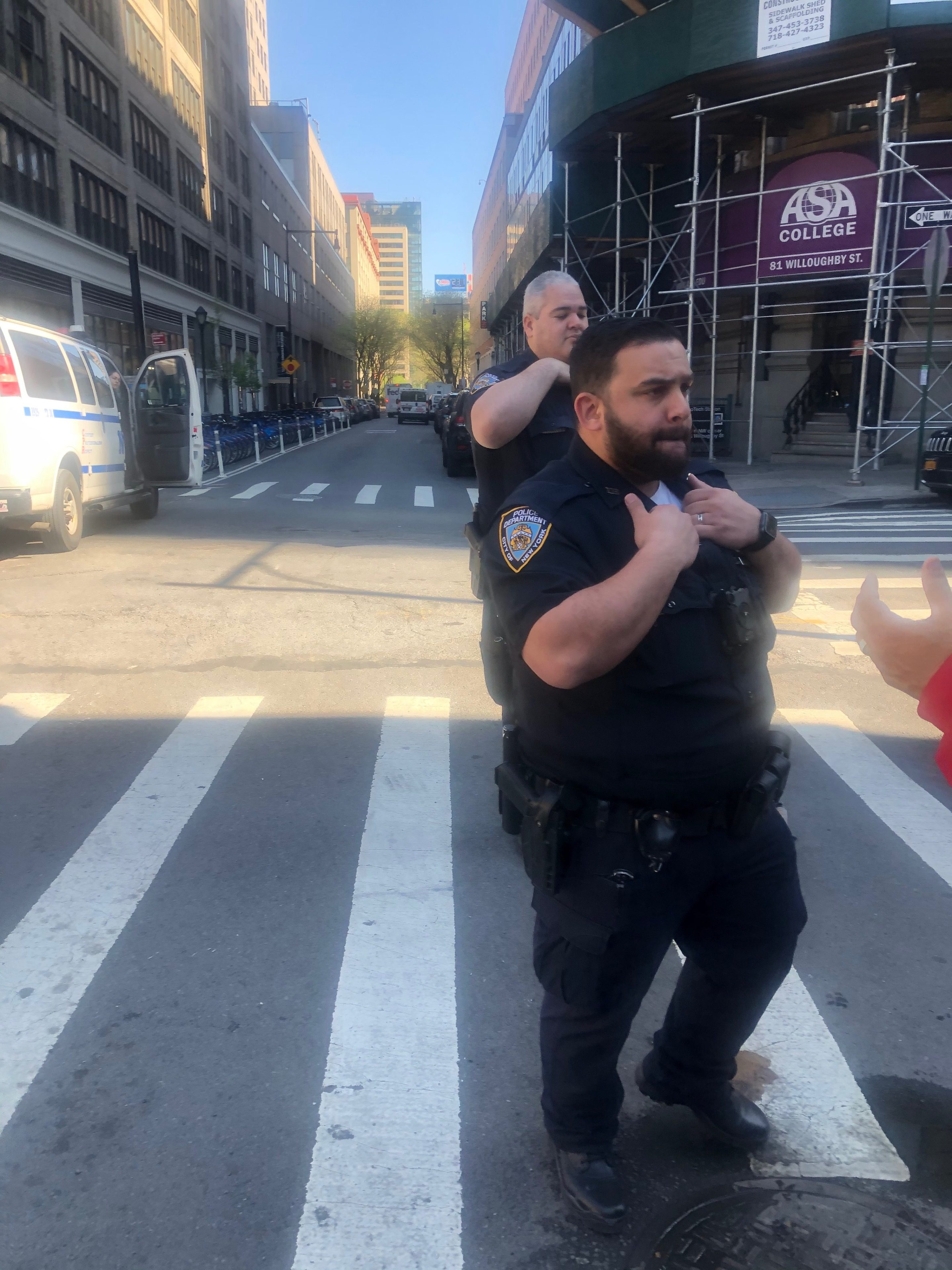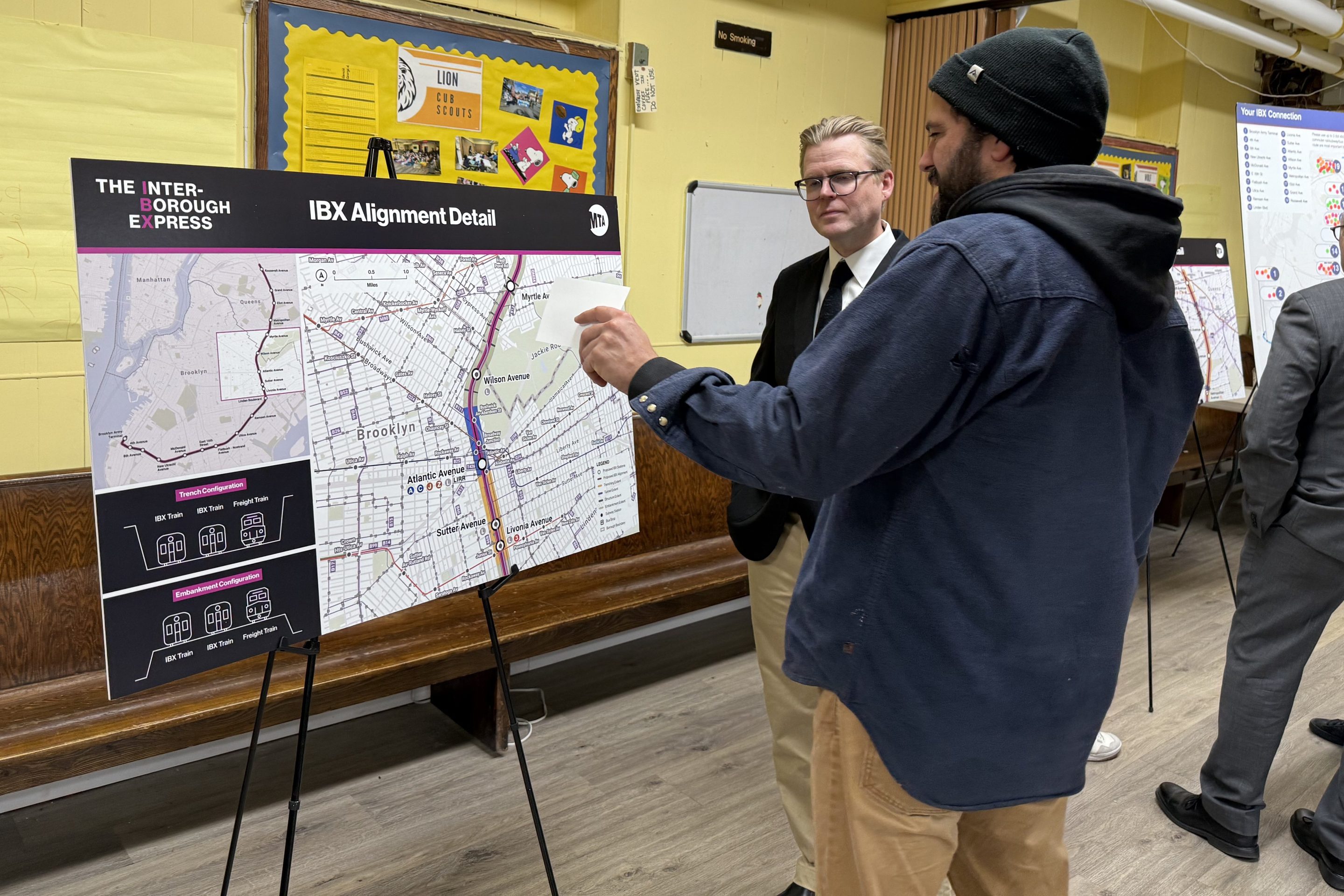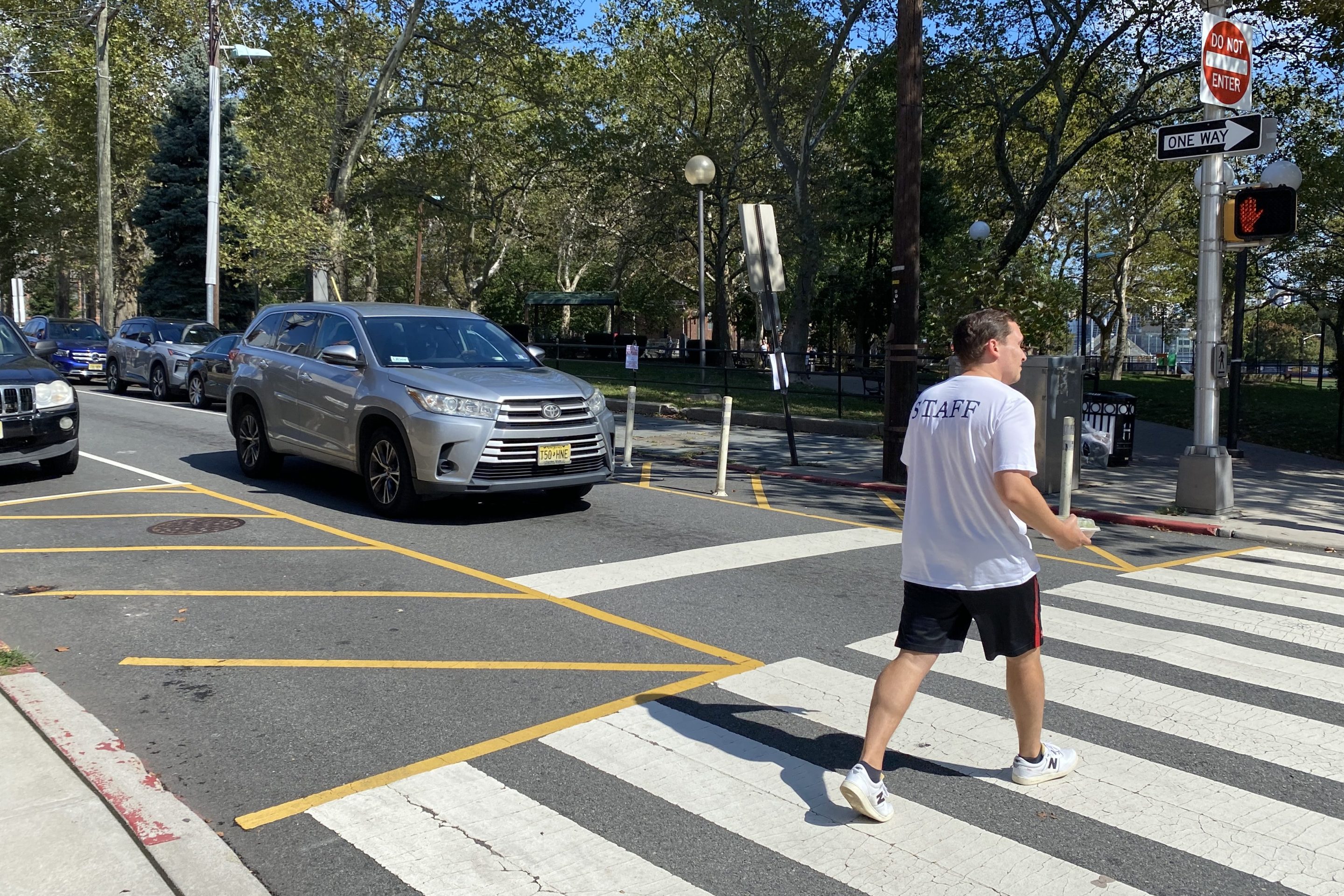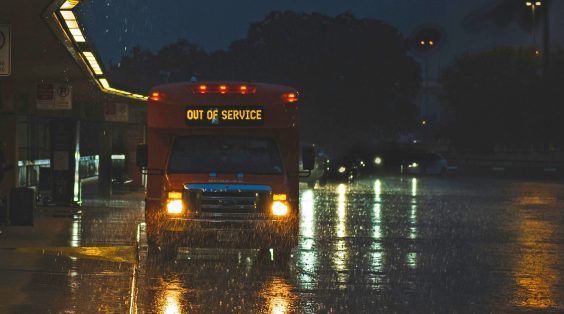You don't have a permit to make this street safe!
Police on Thursday morning stormed a newly opened up street in Downtown Brooklyn, pushing aside the barricades meant to block cars, and wrongly telling workers who had set up the new public space that they needed a permit to participate in what the cops obviously didn't know is a key mayoral initiative.
The Downtown Brooklyn Partnership — a business improvement district that oversees the area around the Borough's civic center — offered staff to participate in the Department of Transportation's expanding open streets program that allows New Yorkers to enjoy socially distanced recreation during the COVID-19 crisis.
The partnership set up barricades on Willoughby Street between Pearl and Lawrence streets, and on Lawrence Street between Fulton and Willoughby streets on Thursday, per the mayor's announcement a day earlier.
But cops from nearby Transit Bureau 30 — whose officers routinely park their private cars in the Schermerhorn Street bike lane, an illegal practice that for years has endangered cyclists — drove up at about 10 a.m. and started tossing the barricades to the side.
“A cop gets out and starts busting down the barricades, didn't say anything,” according to a witness, who asked to remain anonymous.
The officer, who was not wearing a mask, told the BID staff that they needed a permit — and the presence of cops — if they wanted to close the street to cars to open it to people.
But permits are not needed, according to the Department of Transportation, and police are no longer a necessary source of enforcement despite earlier iterations of the program.
New York’s Finest then drove down Lawrence Street, parked their van on Willoughby Street, and walked into a bagel store. The mask-less cops walked out with bagels in hand, got back in their van, and drove off, according to the witness.
“They went off to the bagel shop, which was obviously the mission,” the witness said.
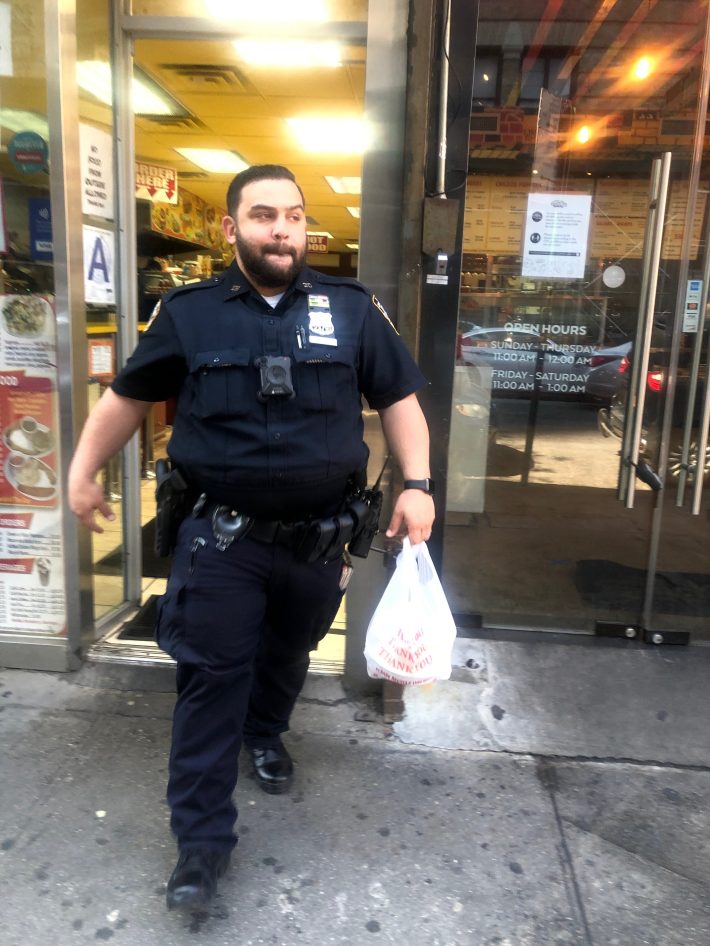
Cops in the Hoyt Street transit bureau likely just didn't get the memo, according to the witness, who said staff quickly put the barricades back up.
The Downtown Brooklyn business improvement district — a source of controversy for pols and advocates who worry that the groups will end up controlling and policing the open spaces at the expense of hard-hit, suffering communities — said it is working closely with the local 84th Precinct to make sure the open streets run smoothly.
A spokesman for the DOT said the issue has been "remedied," and the NYPD did not respond to a request for comment. The open streets initiative, which the mayor hopes to grow to 100 miles, now consists of nine miles of roadways that have been reclaimed from the automobile — though for now, most are in or adjacent to parks.
But this small abuse of power still pales in comparison to the violence the NYPD has inflicted on black and brown New Yorkers for alleged social-distancing violations, including during at least three recent incidents in the East Village, East New York, and Long Island City. (The mayor has insisted that “enforcement” remains his top priority in the open-streets program.)
The city is actively seeking more partners to help it expand the program. Community groups should email openstreets@dot.nyc.gov or fill out the online survey.
